How important are individual mindsets and how do they evolve as leaders engage with the ongoing environment of crisis? Forum’s Futures Lead, Alisha Bhagat, shares her observations, sharing four common mindsets that people hold, and explains why it is important for leaders to shift their mindsets in order to lead transformational change.
“to live in this world
you must be able
to do three things
to love what is mortal;
to hold itagainst your bones knowing
Mary Oliver, New and Selected Poems, Volume One
your own life depends on it;
and, when the time comes to let it go,
to let it go”
Climate change, created by the Anthropocene and our greenhouse gas emissions, transforms the world around us. We see the shifts happening – the inexplicable vanishing of snow crabs, the record hot summer, and countless other environmental changes that are all part of the biggest change of our lifetime. The climate crisis also compounds other crises, including those related to public health, human displacement, and food insecurity, creating what we now call a polycrisis. The ongoing and global nature of the climate crisis makes it take on an ominous and relentless quality. Like Macbeth’s repetitive tomorrows, climate change creeps in at this petty pace from day to day.
Our mindsets, the way we think about climate change, as people and organizations, and our perceived agency to mitigate it, ultimately impacts the actions we take. If we see climate change as something we can impact, rather than an unstoppable force, we might act differently. If rather than a linear progression we see complexity, circularity, and expansiveness, how might we adjust our behavior to be more aligned with systemic change?
Mindsets can be one of the most impactful places to intervene in a system as they dictate so much else. Loosely defined, mindsets include an established set of values, beliefs, attitudes, and culture that shape a person’s thinking and guide their actions. In observing organizational change, I’ve seen a variety of mindsets play out in the way leaders make decisions about the future. We as people often reflect our worldviews and assumptions into imagined future worlds, or scenarios. These in turn are reflected into how organizations are structured and how strategy is set.
Great futures work challenges these assumptions and helps us unpack our mindsets. We can use the future as a space to think about and experiment with concepts such as a world beyond the gender binary, or where half the Earth has been rewilded, to challenge established attitudes, dismantle, and rebuild.
During my past decade working at Forum for the Future, with thousands of people in organizations, big and small, I’ve noticed some patterns in the way people, including myself, react to the reality and inevitable transformation of climate change. These mindsets cross over into the actions of an organization as leaders often hold particular views about their own agency and role in the system. In describing individual climate mindsets, the goal is not to be comprehensive or judgemental, but rather to consider what we might be holding when we think about our relationship with the climate crisis.
- Elephant in the Room: By this point, most people understand the gravity of climate change, but there are still those who choose to ignore it. This could be in part due to climate anxiety but could also be triggered by the desire to hold on to a way of life that might be vanishing. People holding this mindset carry on with ‘business as usual’ despite evidence that change is necessary.
Examples of behavior:- Developers and homeowners who continue to build in vulnerable zones such as wildfire and flooding regions
- Growth in fast fashion despite the environmental costs of production and waste
- Opening of new coal mines
- Sinking Ship: On the flip side, there are those who understand the impacts of climate and choose to respond with a scarcity mentality. When it feels like the world is heading to collapse, why not enjoy things while you can? This mindset is also characterized by hoarding resources. Core to this mindsets the idea that things are vanishing, declining, and scarce, so you have to enjoy life now, as the future looks bleak.
- Rich countries hoarding COVID vaccines
- Tourists going to Venice, Italy to see it before it sinks
- Buying gas stoves before they are banned in NYC
- Human Ingenuity: The solution to the climate crisis will come through technological innovation and our focus should solely be there rather than social or structural change. Just as we solved the problem of world hunger through the discovery of Nitrogen fixation, so too can we create and implement technical solutions to the climate crisis. This optimistic mindset places faith in tech companies, science, and innovation.
- EV hype while ignoring public transit
- Asteroid mining for critical resources
- Solar geoengineering
- Green Consumption: The pervasive mindset that it is the role of citizens to take individual actions, generally around consumption, in order to stop climate change. This mindset takes the spotlight away from companies and governments and places responsibility into the hands of people who are expected to dutifully turn off light switches, take short, cold showers, and participate in clothing swaps.
Within this mindset food and other goods should be produced on a small scale and locally, people should buy less but buy better. While the actions associated with this mindset are positive and very important, it ignores the role of larger institutions as well as the top .01% of the population in creating and perpetrating the climate crisis. Additionally, many of the actions associated with this mindset, such as only consuming local and organic food, are only accessible to a privileged few.- Second-hand clothing and thrifting now big business
- Turning off the light not as effective as switching bulbs
- Zero-Waste Warriors
I can admit to holding these mindsets at different points in time. It is a completely rational human response to look the other way, or try to enjoy what we can of this life. However, I do think there is value in understanding our own assumptions and what we bring into the spaces we inhabit, be they communities, families, or large organizations. If none of these mindsets are adequate in addressing the magnitude of the climate crisis, what is?
When considering Mary Oliver’s poem at the beginning of this piece, in my experience as a human and a mother, it is much easier to love and to hold than it is to let go. We need to let go of ways of life that might be dying and the mindsets embedded in them. We need to let go of gradual, incremental change.
We need to let go of ways of life that might be dying and the mindsets embedded in them. We need to let go of gradual, incremental change.
We need massive systemic change now, the kind that accounts for technological change as well as change on the level of individuals, societies, governments, businesses, and organizations. This does not mean simply setting an ambitious target for 2040; it means integrating and amplifying the kind of change that fundamentally upends our understanding of the world and takes us into different ways of thinking and existing.
This shift in thinking might be uncomfortable, as all good futures exercises are, imagining a world that is structurally different from today is hard for everyone, including leaders who are familiar with making strategic plans. There is often uncertainty and discomfort around what shifts are even needed. Furthermore, the scale seems out of our control, and role. We also know that organizational change is nestled within planetary change. How do we take on the task of transforming our economies, our ways of organizing, and our relationship to nature?
The types of actions we need should be so big and bold they seem almost impossible. In “Half-earth Socialism” the authors Vetesse and Pendergrass advocate for a large-scale socialist rewilding program in order to distribute resources, absorb carbon emissions, and restore biodiversity. Through her “Doughnut Economics” model, Kate Raworth presents an alternative to endless GDP growth, by describing ways in which we can think about human and planetary thriving in balance. The Land Back movement in the US and Canada that focuses on reclaiming the jurisdiction of Indigenous people over land offers an alternative model for land stewardship to what has been created through settler colonialism. These are just some of the examples of the scale of change that we need to get through this.
To shift these, and other ideas from the impossible, courageous, and seemingly fringe, to the possible and necessary, we need to start at the very heart of things, our mindsets. We need to let go of what no longer serves us and embrace what might be uncertain. The shift from the status quo of growth and linearity to one of balance and expansiveness will require us to confront difficult truths and ultimately transform ourselves, and the systems around us, from one thing into another.
To shift these, and other ideas from the impossible, courageous, and seemingly fringe, to the possible and necessary, we need to start at the very heart of things, our mindsets.
How can leaders and organizations take the first step towards mindset shifts? We outline four possible business transition trajectories and five principles to transform through crisis in our most recent Future of Sustainability: Courage to Transform Report.


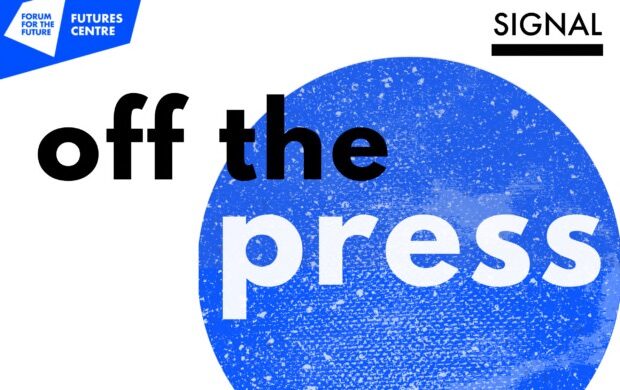

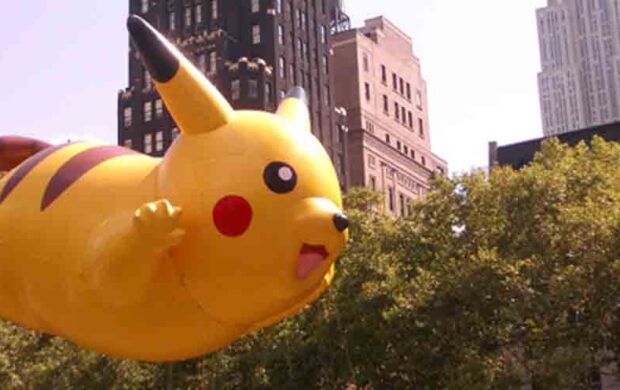
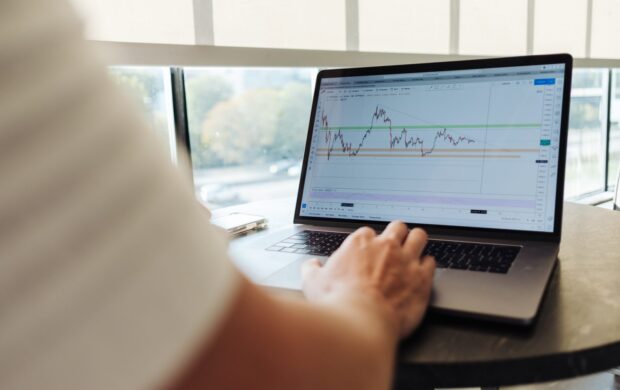
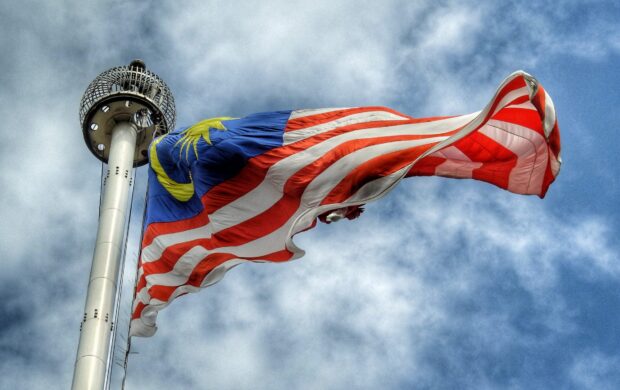

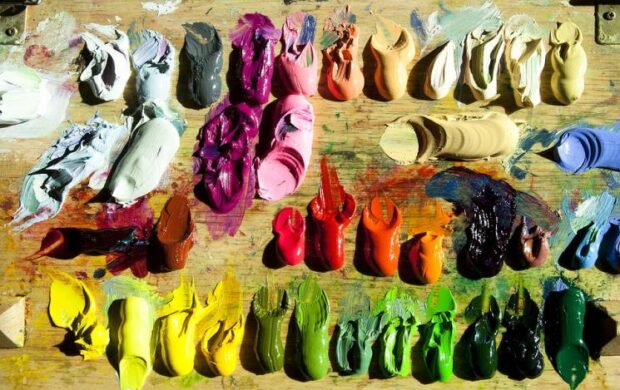



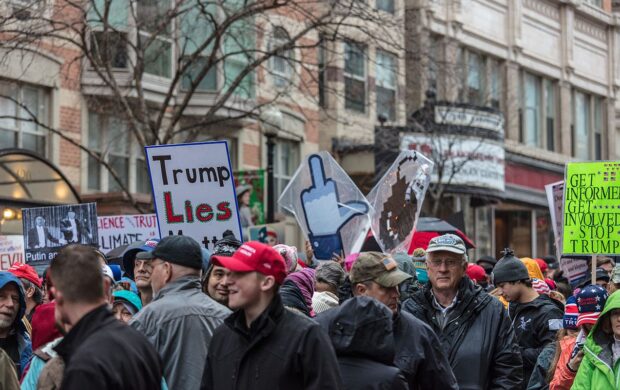

Join discussion